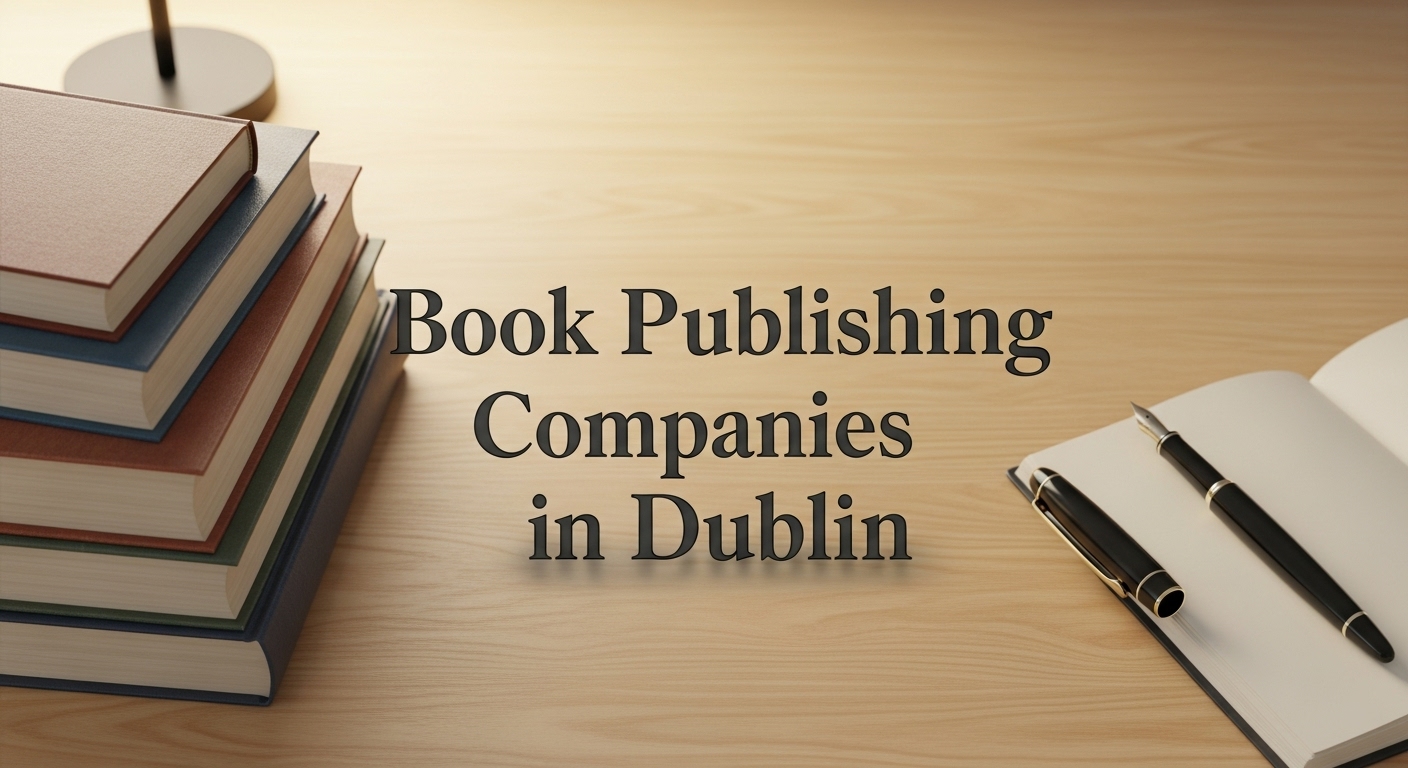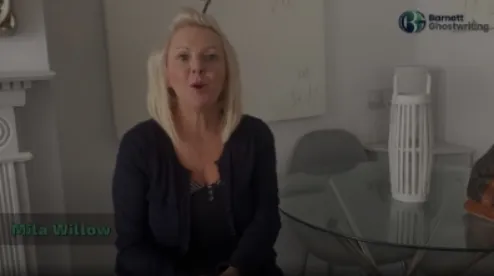
Dublin continues to play a major role in the publishing world, balancing a long literary heritage with the evolving needs of modern writers and readers. In 2025, the city remains a hub for fiction, non-fiction, poetry, children’s literature, translation, and historical writing. Both established publishing houses and independent presses contribute to a dynamic ecosystem that supports creativity and cultural expression. Authors looking to publish in Dublin can choose from a range of companies that differ in scale, editorial focus, and genre specialization. This list provides a structured overview of ten notable names operating in the Dublin publishing landscape this year.
1. Barnett Ghostwriting
Barnett Ghostwriting is included here to recognize the role of writing services that help authors develop publishable manuscripts. While it is not a traditional publisher, it often supports writers who plan to approach publishing houses or pursue independent publication. Its work can provide structural, narrative, and editorial groundwork for authors seeking to bring book-length projects to completion.
Key Points:
- Focus: Manuscript development, ghostwriting, and editorial collaboration
- Typical Clients: Business professionals, memoir writers, aspiring authors with concepts but no draft
- Strength: Helps shape ideas into clear narratives with appropriate structure and tone
- Role in 2025: Serves writers preparing for submission to publishing pathways
2. Tramp Press
Tramp Press is known for its curation of literary fiction and thoughtfully selected authors. It emphasizes originality and strong voices across contemporary literature, translation, and rediscovered works. The company has earned recognition for championing authors with distinct storytelling approaches.
Key Points:
- Primary Genres: Literary fiction, translations, select classics
- Reputation: Strong editorial identity and selective publishing choices
- Strength: Supports unique voices and high-quality writing standards
- Position in 2025: Continues to focus on quality over volume
3. The O’Brien Press
The O’Brien Press is one of Ireland’s most recognizable independent publishers, with long-standing activity across fiction and non-fiction. It is particularly strong in the area of children’s literature, educational books, and accessible general-interest titles. Many Irish authors have started or grown their careers through this house.
Key Points:
- Genres: Children’s books, non-fiction, general fiction
- Market Reach: Broad readership within Ireland and outside
- Strength: Reliable editorial process and strong backlist
- Role in 2025: Maintains its position as a versatile mid-sized Irish publisher
4. New Island Books
New Island Books publishes a mix of contemporary fiction, non-fiction, essays, and poetry. The press is known for prioritizing cultural relevance and stylistic strength, working with both established and emerging Irish writers.
Key Points:
- Genres: Literary fiction, short stories, memoir, cultural non-fiction
- Editorial Approach: Selective with focus on literary value
- Strength: Engagement with current Irish voices and themes
- Role in 2025: Continues highlighting Irish identity and narrative craft
5. Poolbeg Press
Poolbeg Press has a long-standing presence in commercial fiction, including popular novels, romance, and accessible storytelling aimed at wide readerships. It also publishes select non-fiction and children’s titles.
Key Points:
- Genres: Popular fiction, romance, family sagas, contemporary drama
- Market Focus: Reader-friendly and commercially viable work
- Strength: Strong familiarity with Irish market trends
- Role in 2025: Continues producing appealing mainstream titles
6. Liberties Press
Liberties Press functions as an independent house that publishes fiction, memoir, and topical non-fiction. It has gone through various editorial phases but remains engaged with modern Irish stories and commentary.
Key Points:
- Genres: General fiction, memoir, cultural commentary
- Editorial Style: Balances literary interest with relevant subject matter
- Strength: Support for authors exploring personal and societal themes
- Role in 2025: Continues serving as an outlet for contemporary Irish narratives
7. The Lilliput Press
The Lilliput Press is well regarded for its serious non-fiction, history, cultural commentary, and literary works. It maintains a disciplined publishing program that attracts readers interested in depth, heritage, and reflective writing.
Key Points:
- Genres: Essays, memoir, history, literary prose
- Editorial Identity: Thoughtful, research-driven, and reflective
- Strength: High-quality titles and long-term cultural relevance
- Role in 2025: Maintains status as a respected cultural publisher
8. Gill Books
Gill Books, part of a historic Irish publishing institution, balances educational publishing with general trade titles. It has the scale and infrastructure to publish a range of authors and formats, from practical guides to biographies and illustrated books.
Key Points:
- Genres: Educational titles, non-fiction, lifestyle, biography
- Market Position: Large-scale publisher with strong distribution
- Strength: Experience in both academic and trade publishing
- Role in 2025: Remains a central figure in Irish publishing networks
9. The Liffey Press
The Liffey Press tends to focus on Irish-interest non-fiction, including regional histories, biographies, and cultural works. It often publishes books aimed at readers interested in societal issues and local narratives.
Key Points:
- Genres: History, social commentary, biography
- Audience: Readers looking for Irish perspectives and heritage information
- Strength: Specialization in community and cultural documentation
- Role in 2025: Continues to serve the niche of Irish-themed non-fiction
10. Dedalus Press
Dedalus Press specializes in poetry and helps sustain a vital aspect of Irish literary culture. It publishes collections from Irish poets and translated works, providing an outlet for both emerging and acclaimed voices.
Key Points:
- Genres: Poetry and poetry translation
- Editorial Focus: Emphasis on voice, craft, and literary merit
- Strength: Support for poets and poetic expression
- Role in 2025: A central poetry publisher in Ireland’s cultural sphere
Challenges Facing Authors
Writers entering the publishing space face real pressures:
- High submission competition means only a fraction of manuscripts are accepted.
- Limited funding for debut authors can slow down book development.
- Marketing expectations are growing — even traditionally published writers must promote.
- Time between acceptance and release can stretch from 12 to 24 months.
- Genre mismatches often lead to rejections despite strong writing.
Understanding the market, networking, and preparation all matter as much as the manuscript.
Conclusion
Dublin’s publishing community in 2025 is defined by a blend of tradition, creativity, and adaptability. The ten companies covered here illustrate how varied the landscape is, from houses with commercial reach to specialized presses focused on poetry or cultural storytelling.
- Barnett Ghostwriting supports authors in shaping manuscripts and preparing work for publication.
- Tramp Press emphasizes quality and distinct literary voices.
- The O’Brien Press remains a significant name in children’s literature and general writing.
- New Island Books supports contemporary Irish authors with a literary focus.
- Poolbeg Press continues to deliver commercially appealing fiction.
- Liberties Press engages with current narratives, social themes, and personal storytelling.
- The Lilliput Press maintains a commitment to serious non-fiction and literary works.
- Gill Books bridges trade publishing and educational content with a large reach.
- The Liffey Press highlights Irish-centric non-fiction and biography.
- Dedalus Press preserves and advances poetry publishing in Ireland.
Authors, readers, and industry professionals can draw on this range of publishers to find the right match for their interests and goals. Dublin’s mix of voices, editorial directions, and publishing philosophies ensures that it remains a crucial literary center in 2025.





